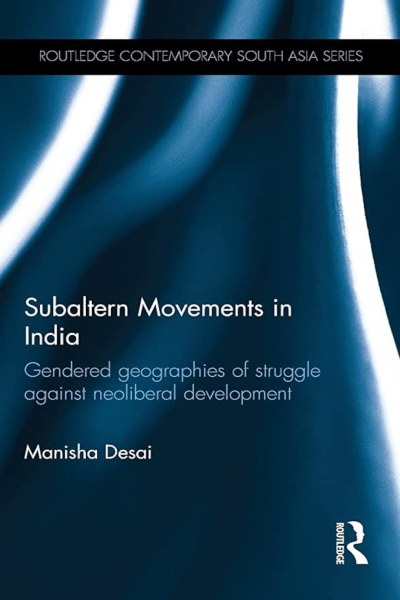Manisha Desai, Author
Social struggles in India target both the state and private corporations. Three subaltern struggles against development in Gujarat, India, succeeded, to varying degrees, due to legalism from below and translocal solidarity, but that success has been compromised by its gendered geographies.
Based on extensive field research, this book examines the reasons for the three social movements succeess. It analyses the contradictory reality of the deepening of democracy along with coercive state measures in the era of neoliberal development, the importance of the legal changes in the state, the nature of the local fields of protest, and the translocal field of protest in contemporary subaltern protests. Addressing gender inequalities within and outside the struggle, the author shows that despite subaltern women having symbolic visibility in the public spaces of the struggles – such as rallies, protests, and meetings with government officials – they are absent from the private spaces of decision-making and collective dialogues.
This book offers a new approach on the politics of social movements in contemporary India by discussing the nuanced relationship between development and democracy, social justice and gender justice. It will be of interest to academics in the field of Development and Gender studies, Studies of social movements and South Asian Studies.
